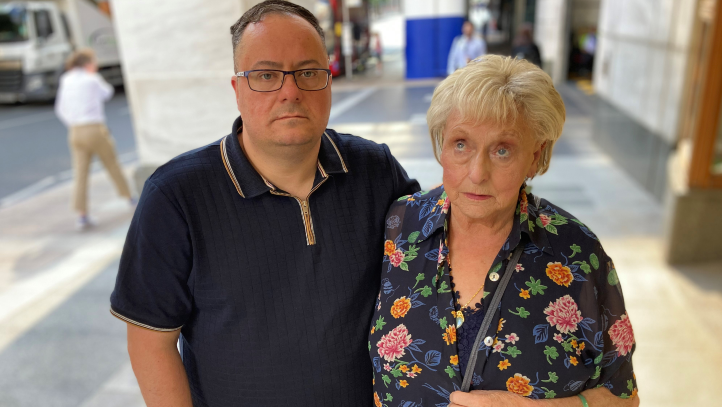Inside the hearing that could free woman's killer
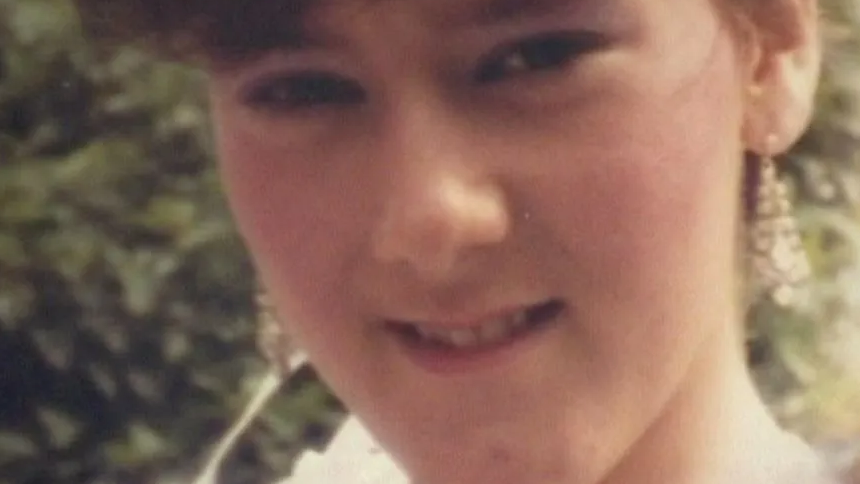
Julie Hogg was 22 years old when she was murdered by William Dunlop in 1989
- Published
The Parole Board normally conducts its business behind close doors. The details of how serious criminals have progressed in prison and the reasons for their eligibility for potential release are kept secret. But in a move to increase transparency, the case of double jeopardy murderer William Dunlop has been partly heard in public. How did it work?
About half an hour into the hearing, Ann Ming is angry.
She has travelled 260 miles to hear what is said about her daughter's murderer, but clearly there is an issue with the sound.
"It's an absolute shambles for the family," she shouts, as she storms into Courtroom 67 at the Royal Courts of Justice in London. "We couldn't hear a thing in there."
She and her six-strong entourage, which includes her grandson Kevin Hogg, had started the day in a private room, but with the audio in there clearly deficient, they have joined the 20 or so members of the public and journalists in the courtroom.
Tensions were already high, this hearing having been previously rescheduled at the last minute several months ago, the latest in decades-long string of delays in the quest for justice for Julie Hogg.
The 22-year-old mother-of-one was strangled, sexually abused and hidden beneath her bath by Dunlop in 1989, who then walked free from two murder trials before later confessing.
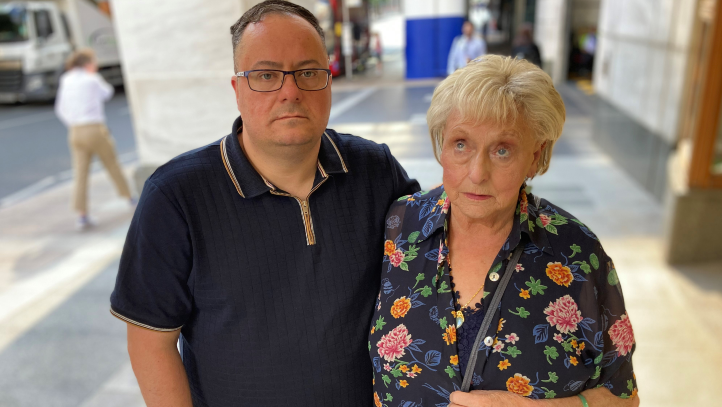
Kevin Hogg and Ann Ming attended the hearing in London
Sat at banks of wooden desks on fold-down blue chairs, we are all watching two large TV screens at the front of the room.
The actual action is happening many miles away in an unnamed prison, the four members of the Parole Board panel having convened there with various legal representatives, prison staff and Dunlop.
We can see two shots of a non-descript room, the walls painted a light blue, and several people sat around a large wooden conference table.
A couple of whiteboards hang on the walls, one with the large message "change your thoughts and you change your world" written in big black letters upon it.
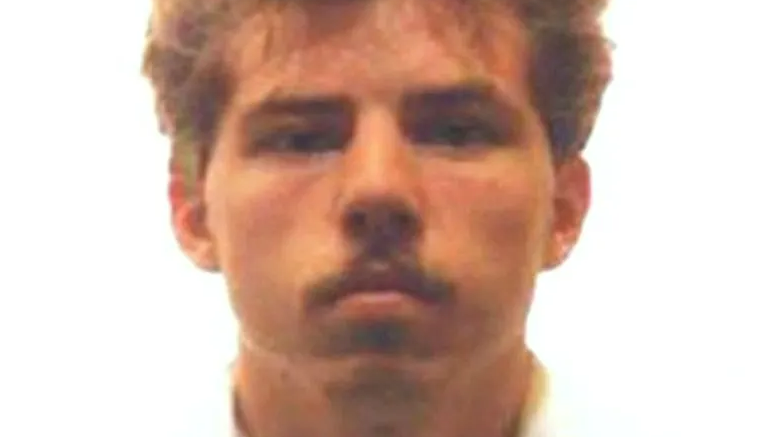
William Dunlop is seeking a move to an open prison
Much of what we hear is anonymised, often to the point of being indecipherable.
Every time someone sounds like they might reveal a name or detail which the panel wants kept secret, the audio feed is cut, prompting snorts of frustration from Ms Ming and her family.
Their anger is audibly amplified when, on one occasion, the link suddenly closes, to be replaced by an error message.
We do not know which prison the panel is at, although one person does let a name slip, leading to a flurry of whispers and questions among the press and quick internet searches to see where it might be.
We also do not know the names of the four panel members, or any of the speakers.
Everyone is identified only by their roles, such as the woman who is Dunlop's prison offender manager and the man who acts as his key worker.
Transparency only goes so far
The panel chairman tells us he is a retired crown court judge and his three colleagues, two men and a woman, include someone with legal experience and a psychological expert.
The panel has to go to the prison, the chairman says, as the grand Gothic court on Strand does not have the secure facilities needed to accommodate an inmate.
Holding such hearings in public is still at the trial stage and demonstrates a commitment to enhance transparency around the making of such important decisions, the chairman says, but there is a "significant difficulty" in allowing even this limited openness.
It's impossible to say what proportion of the material we will actually be privy too, much is said in closed sessions with the press and public excluded, but the bits we do hear do offer a fascinating insight into this usually secret process.
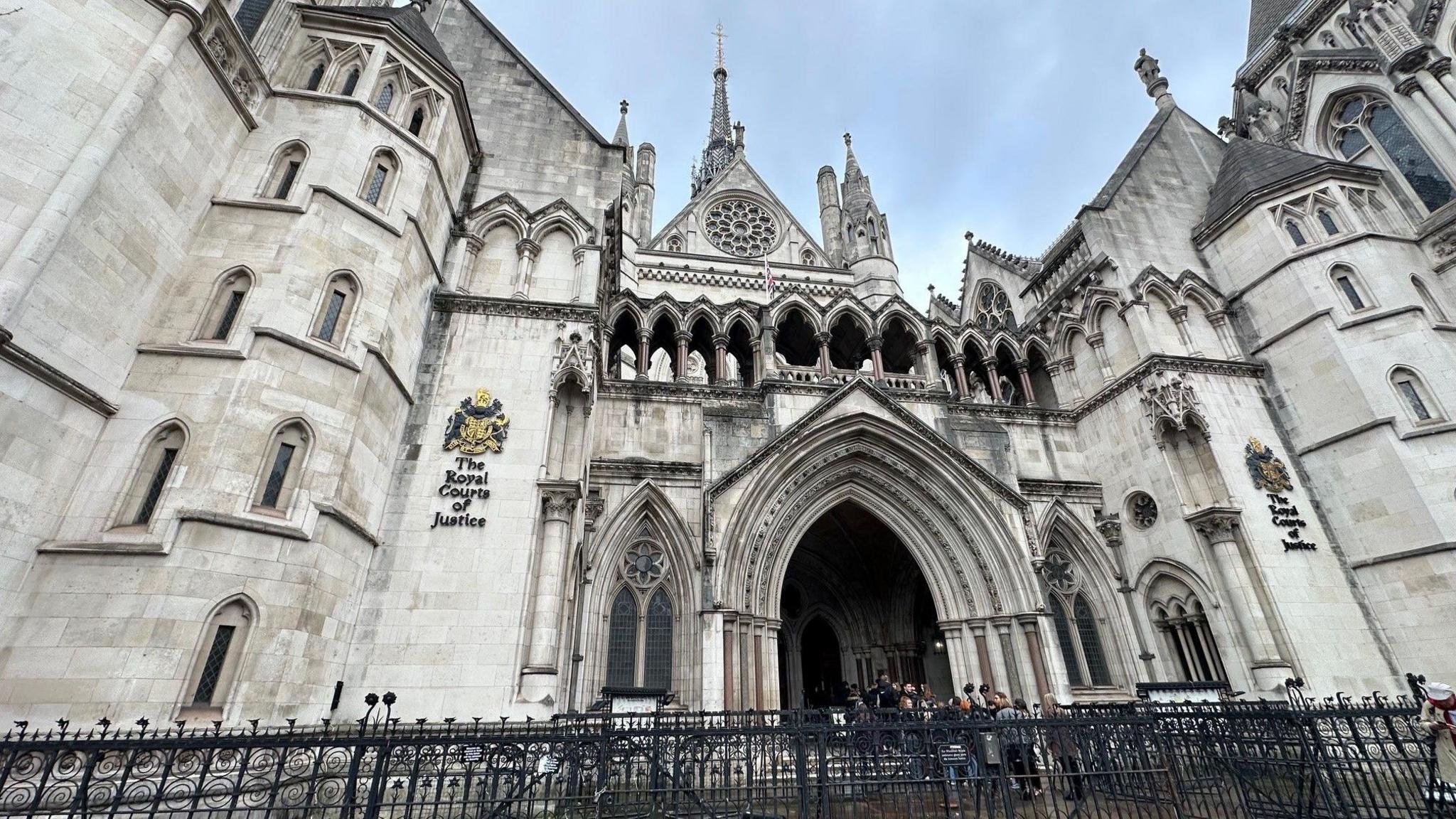
The Parole Board hearing was broadcast at the Royal Courts of Justice on Strand in London
It is rare to hear a convicted killer speak about his offending, but we hear a lot from Dunlop over the course of five hours.
At no point, though, does he appear on the screen, the cameras carefully angled to show only a couple of lawyers and the four panel members.
He talks about the "horrible" man he was, how he viciously abused women, fought men when he felt challenged and flew into rages, and how Julie Hogg was the unlucky person he finally went too far with in 1989.
He says he deeply regrets what he did and is a changed person, prompting scoffs from Ms Hogg's mother and son, the latter just three years old when his mum was murdered by Dunlop.
They are visibly disgusted when Dunlop says he has a lot of respect and time for them and bears them no malice.
He had not wanted this meeting to be open to the public, claiming it caused him stress and anxiety, but while the "normal position" would still be for the Parole Board to meet in private, the organisation's chair Caroline Corby previously ruled the interests of justice, external in this case outweighed Dunlop's own.
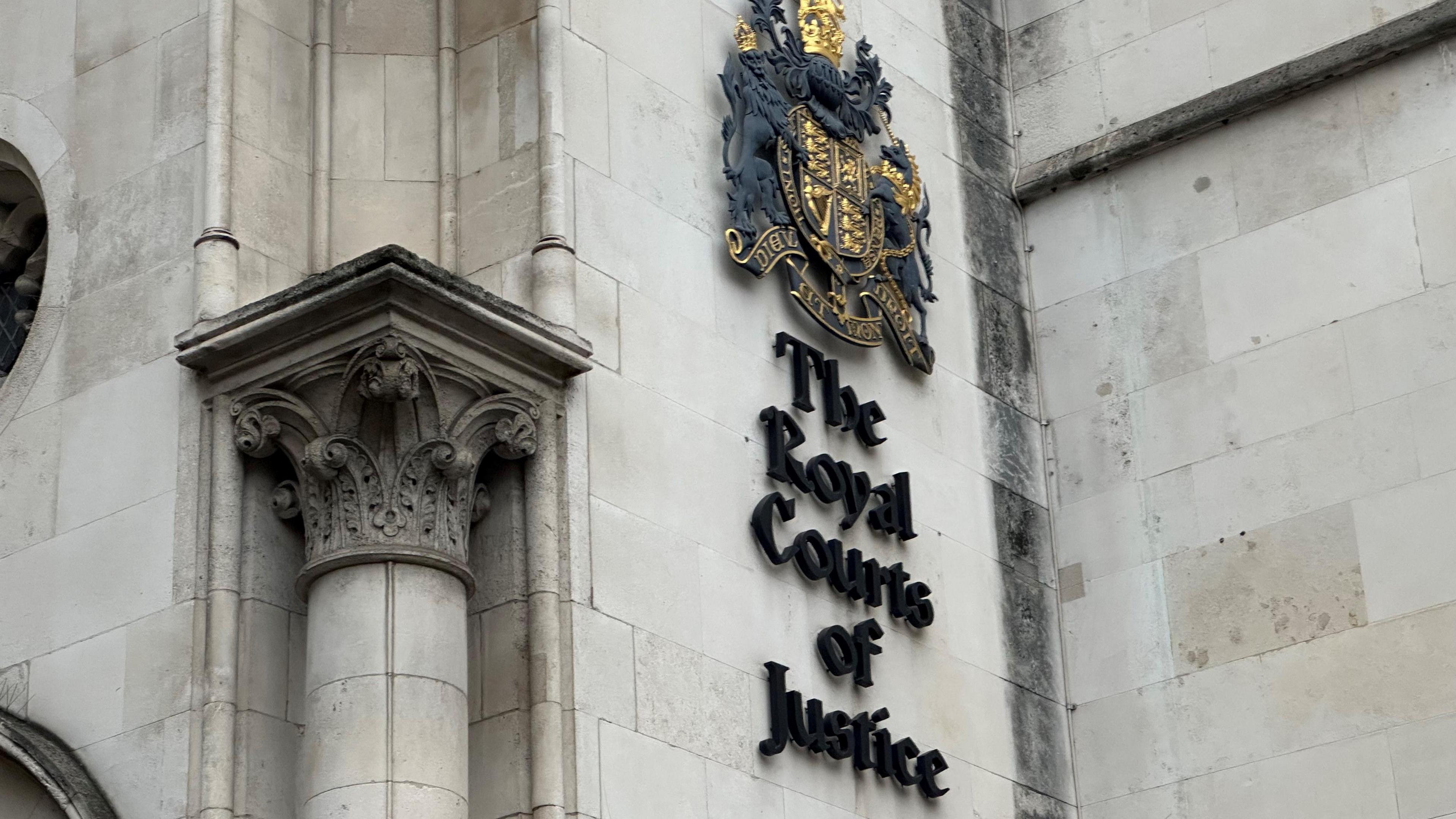
The Parole Board panel will make a recommendation in the coming weeks
It is all very civilised and methodical, matter-of-fact discussions of sex thought diaries and emotional journals, references to completed courses and therapies and allusions to Dunlop being a "model" prisoner, all of which lead professionals to have no cause for concern about him being moved.
Dunlop discusses his past violence in a straight, analytical style, talking about the flaws which led to his crimes and the corrections in his thinking he has undertaken inside.
The prison staff and a psychologist were convinced by him, he says the things the Parole Board no doubt wants to hear, but nothing he could say could ever convince Ms Hogg's family he should be released from high-security incarceration.
The path Ms Hogg's family have forged to get here is well-documented, how they overturned an 800-year-old double jeopardy law so Dunlop would finally face justice.
They vehemently oppose Dunlop being freed from a high-security prison, but the professionals who work with him on a daily basis say he is ready for open conditions.
Dunlop had initially asked to be released from prison entirely, but changed his application partway through proceedings after hearing the professionals' opinions.
The wait goes on
The panel will make a recommendation to the secretary of state based on the level of risk Dunlop is believed to still pose and whether that risk can be successfully managed.
In 2022, the Parole Board recommended he be moved to an open prison but that was rejected by the secretary of state.
As the hearing nears its end, the chairman apologises for any technological difficulties which interrupted the stream and pledges to speak to Ms Hogg's family.
Further closed sessions will be needed before the panel can agree a recommendation, so it will be in the new year before anything is announced.
Dunlop returns to his cell, his victim's family head out into London streets bustling with commuters, tourists and Christmas shoppers.
Nothing they have heard has changed their minds. For them, Dunlop should remain behind bars.
Follow BBC Tees on X,, external Facebook, external, Nextdoor and Instagram, external. Send your story ideas to northeastandcumbria@bbc.co.uk.
Related topics
- Published6 October
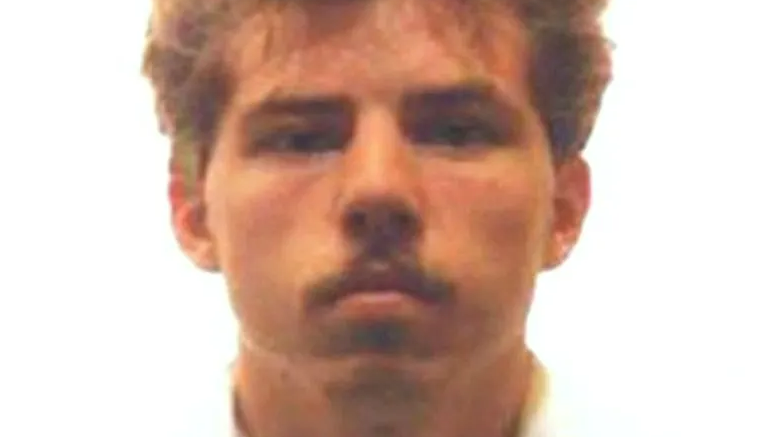
- Published16 December 2024
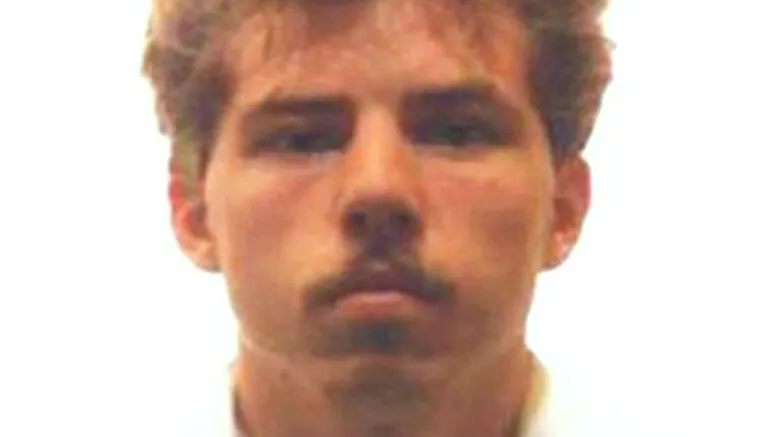
- Published26 June 2024
